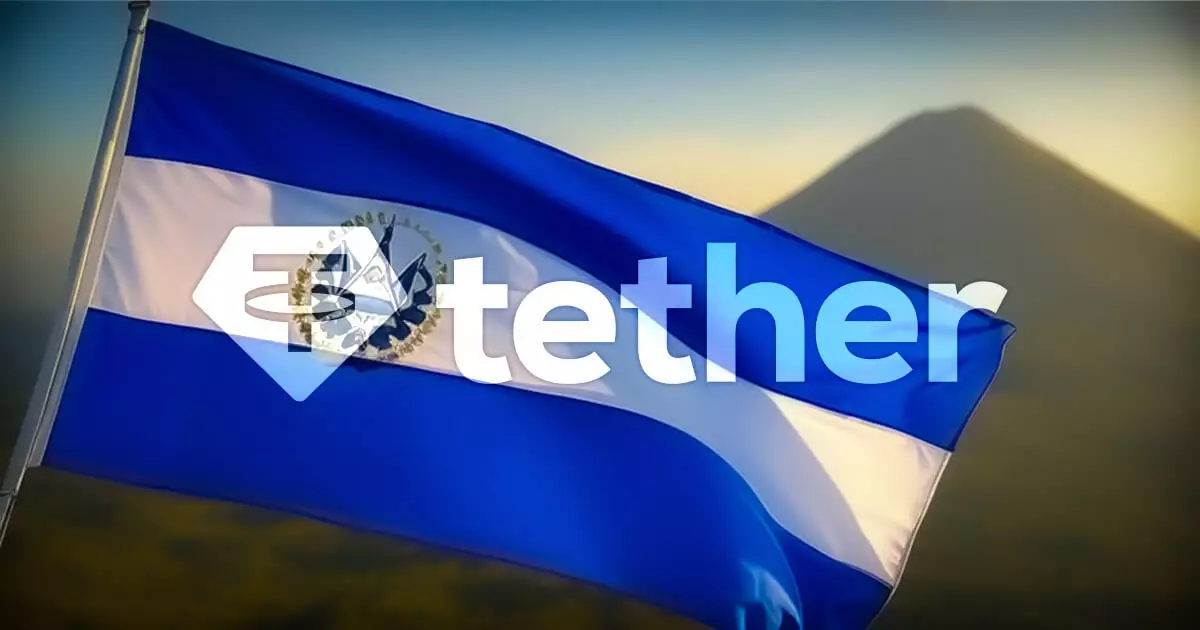Tether, a dominant player in the stablecoin market, is making headlines with its decision to relocate its global headquarters to El Salvador, as revealed in a statement issued on January 13. This strategic move comes on the heels of Tether obtaining a Digital Asset Service Provider (DASP) license, enabling it to operate more effectively within a burgeoning digital asset ecosystem. El Salvador’s historic adoption of Bitcoin as legal tender not only sets it apart but positions it as a unique landscape where digital finance can flourish. The decision by Tether reflects its belief in the transformative potential of blockchain technology and its commitment to enhancing financial inclusivity in underserved regions.
El Salvador: A Crucible for Digital Innovation
Under the leadership of President Nayib Bukele, El Salvador has undergone significant regulatory reforms that support blockchain ventures and cryptocurrency operations. Tether has recognized that the country’s Bitcoin-first approach encourages a proactive regulatory environment that is particularly appealing to tech-forward businesses. By establishing a presence in El Salvador, Tether aims to harness these favorable conditions to foster its innovation objectives while also expanding its reach in the Central American market, known for its financial disenfranchisement. This alignment with a nation dedicated to embracing digital currencies embodies Tether’s ethos of leveraging innovative technologies to promote financial access.
The relocation of Tether to El Salvador is not only a corporate strategy but also a mission to improve economic conditions across the globe. The company asserts that a significant motivation for this move centers on its desire to empower individuals in regions often ignored by conventional banking systems. By embedding itself within a nascent yet dynamic market, Tether intends to champion the cause of financial inclusion. Its CEO, Paolo Ardoino, reiterated this sentiment by emphasizing the pivotal role technology can play in shaping a more equitable financial landscape. Tether’s efforts will focus on utilizing stablecoins to provide a more stable economic environment for those who lack traditional banking resources.
Ardoino’s admiration for Bukele’s progressive leadership further supports Tether’s decision to make El Salvador its new home. He views Bukele not merely as a political figure but as a transformative leader with the capability to influence the economic fabric of the country dramatically. Ardoino has consistently praised Bukele’s initiatives, asserting that they have created a sense of opportunity and innovation that aligns with Tether’s objectives. By positioning itself in El Salvador, Tether is signaling its au courant approach to establishing a symbiotic relationship between its corporate goals and the nation’s aspirations towards a vibrant digital future.
Future Prospects and Digital Finance Evolution
With its relocation, Tether is poised to contribute significantly to El Salvador’s ambition to lead in digital finance. This move is expected to attract global attention and encourage other blockchain enterprises to consider similar strategies in their operational frameworks. By embedding itself within a supportive ecosystem committed to technological advancement, Tether is not just establishing its headquarters in El Salvador; it is actively participating in the evolution of how financial services can be reimagined in the digital age. The future of finance may very well be shaped by the efforts of innovative entities like Tether, as they capitalize on the rich opportunities presented by blockchain technologies in emergent markets.



















Leave a Reply